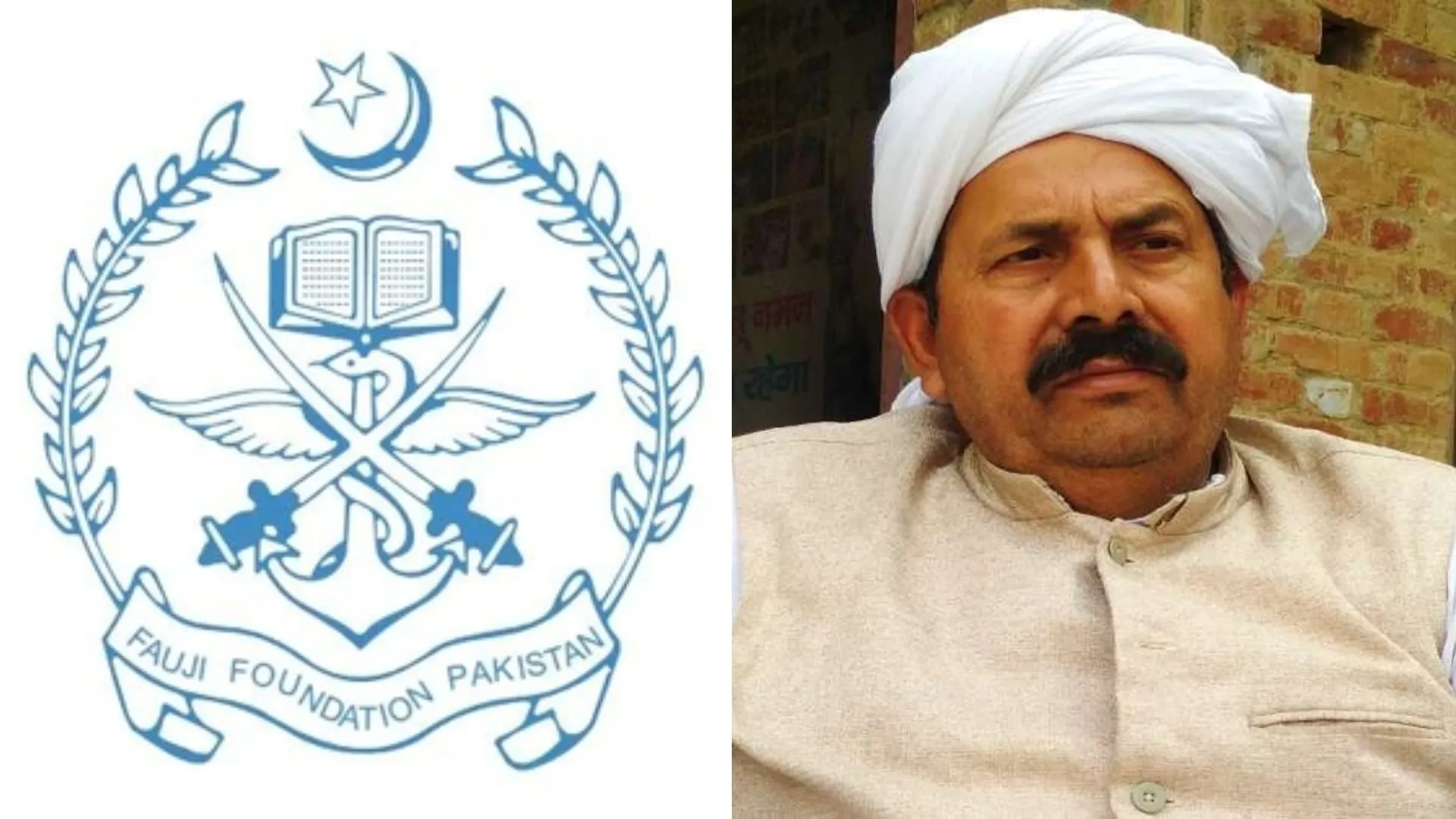Naresh Tikait Calls For Restoring Indus Waters Treaty: Does The BKU Leader Support The Pakistani Fauji Corporation?

Farmer leader Rakesh Tikait stirred controversy with his remarks on the recent Pahalgam terror attack, implying that the real perpetrators are not the terrorists but those who profit from such violence. In his speech, Tikait acknowledged the devastating impact of the attack on Kashmir and its tourism but raised concerns about who ultimately benefits from such tragedies. He drew an analogy with murders in villages, where the police often investigate who stands to gain — land, property, or other advantages. "In this case, too, the question is: who gains from these attacks?" he said. Alleged Farmer Leader Rakesh Tikait disgraces the memory of martyrs of Pahalgam attack, calls terrorists and their Pakistani masters "innocent", says kashmiris are the biggest sufferers and culprits are the ones benefiting from these attacks. How to handle anti-nationals? pic.twitter.com/UVXW3IdTTP — Megh Updates 🚨™ (@MeghUpdates) April 28, 2025 Tikait emphasized that Kashmiris are the primary victims of such violence and rejected the idea that local people or groups linked to Pakistan would benefit from it. "Would Kashmiris ever thrive by creating such chaos?" he questioned, hinting that the real beneficiaries are elsewhere. Without directly naming anyone, Tikait criticized certain media outlets for presenting a biased narrative, suggesting that while it's clear who benefits, these individuals remain unnamed and hidden within the system. After the terrorist attack in Pahalgam, the Indian government took several stringent decisions against Pakistan, one of which included the suspension of the Indus Water Treaty. However, Chaudhary Naresh Tikait, the National President of the Bharatiya Kisan Union (BKU), does not seem to support this decision. He states that stopping the water will harm the farmers in Pakistan. His statement has gone viral on social media. What Did Naresh Tikait Say? According to a report, Chaudhary Naresh Tikait, on the evening of April 27, stopped briefly at Nakud (Nakur) town to meet the organization's workers while traveling to Haryana. During his interaction with the media, he expressed his reaction to the Pahalgam terrorist attack. He said that this incident is extremely tragic, and not only India but the whole world is condemning it. The entire country should unite against terrorism, and the government should take strict action against it. When asked about the decision to halt the Indus Water Treaty, Naresh Tikait responded, "This attack may have been carried out by two or ten people, but the entire country of Pakistan should not be blamed for it." Naresh Tikait, brother of Rakesh Tikait and President of the BKU, has said that suspending the Indus Waters Treaty is a wrong move. He stressed that the agreement should stay intact and that water should continue flowing to Pakistan as before. pic.twitter.com/J0LHUnN1df — Gagandeep Singh (@Gagan4344) April 28, 2025 He added, "Some people will oppose what we say, and some will support. But we do not agree with the government's decision to stop the water, because farmers are there too. There are farmers everywhere in India. The water should have continued to flow. It is wrong that a few people’s mistakes, whether two or ten, result in millions of people suffering." He added that in such a case, the government should engage in dialogue and make a decision. Naresh Tikait also raised questions about the government’s role. He said that if such attacks are happening in India, there must be some lapse on the part of the government. He further stated that terrorists have no religion; they can belong to any religion or faith. Land Grab Allegations On The Pakistan Army The Pakistan Army, led by General Asim Munir, again faced accusations of being the country’s biggest land grabber in 2023. A recent ruling by a Lahore High Court judge labeled the army as the largest landowner in Pakistan, with the military holding about 12 percent of the country’s total land. This claim follows ongoing attempts by the army to acquire public land, including a failed attempt to seize over 45,000 acres of fertile land in Punjab. The Pakistan Army’s latest venture involves corporate farming in Punjab through the Fauji Foundation’s new project, Fongrow, headed by retired Major General Tahir Aslam. This project aims to acquire large tracts of farmland over the next several years, with the ultimate goal of promoting high-yield, mechanized farming practices in the country. The Pakistan Army’s Real Estate and Agricultural Expansion The army’s involvement in various business ventures, including real estate through the Fauji Foundation, has long raised concerns. The Lahore High Court had previously ruled on a petition against the Defence Housing Authority, a project linked to the Fauji Foundation, stating that the army was the largest land grabber. The army, led by retired generals, has been active in acquiring land, not just for military use but also for commercial ventures, including farming. Despite legal challenges, including a ruling by the Islamabad High Court that restricted the army from engaging in business activities or claiming state land without government approval, the Fauji Foundation has managed to acquire significant land. Does Pakistan Army Hold Over 45,000 Acres Of Land? According to the publication The Pak Military Monitor, in March 2023, the Punjab government had agreed to offer over 45,000 acres of land to the Fauji Foundation, but the court's intervention halted this takeover. Fongrow, established in 2022, has already acquired around 5,000 acres of land, with 2,250 acres under cultivation at the Perowal-Khanewal Farm in Southern Punjab. The farm serves as a ‘testbed’ for advanced farming techniques. General Asim Munir has emphasized the importance of this initiative, stating that it was time for Pakistan to stop relying on external aid. Looking ahead, Fongrow plans to expand its corporate farming operations to cover more than 30,000 acres in the next five years, focusing on crops like cotton, wheat, pulses, oil crops, and Rhodes grass. The project will extend to the Thar desert area and aims to set up a 10,000-acre farm near Mankera, incorporating modern farming technologies. The long-term goal for Fongrow is to establish corporate farms spanning 100,000 acres across different districts of Pakistan. The company intends to cultivate a variety of crops, including wheat, cotton, soybeans, oilseeds, and sesame, utilizing the latest technological innovations to maximize agricultural productivity. ALSO READ: Watch: Former Pakistani Cricketer Shahid Afridi Takes Sharp Jibe At India Post Pahalgam Tragedy: Islam Only Teaches Peace
















